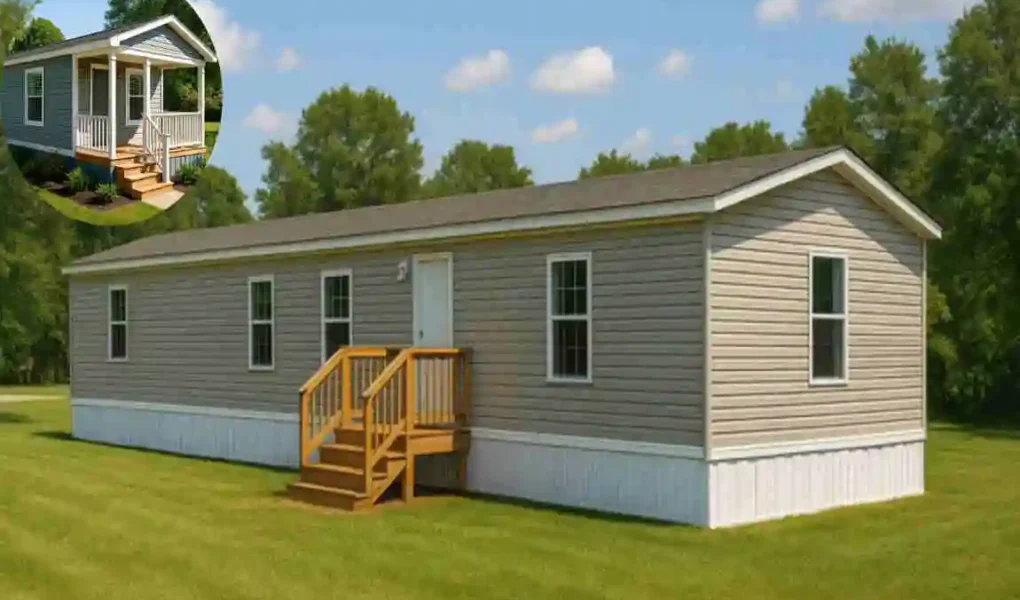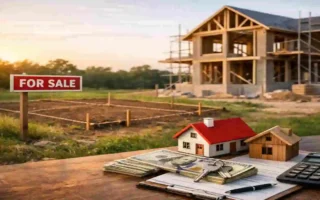Mobile homes make up an important slice of the U.S. housing market — about 10% of all homes. Yet many mobile homes are undervalued by as much as 30% simply because people don’t know how to value them properly. If you’re a seller, buyer, or owner looking to refinance or insure your mobile home, understanding exactly how to determine its worth can save or earn you thousands.
Why Accurate Mobile Home Valuation Matters
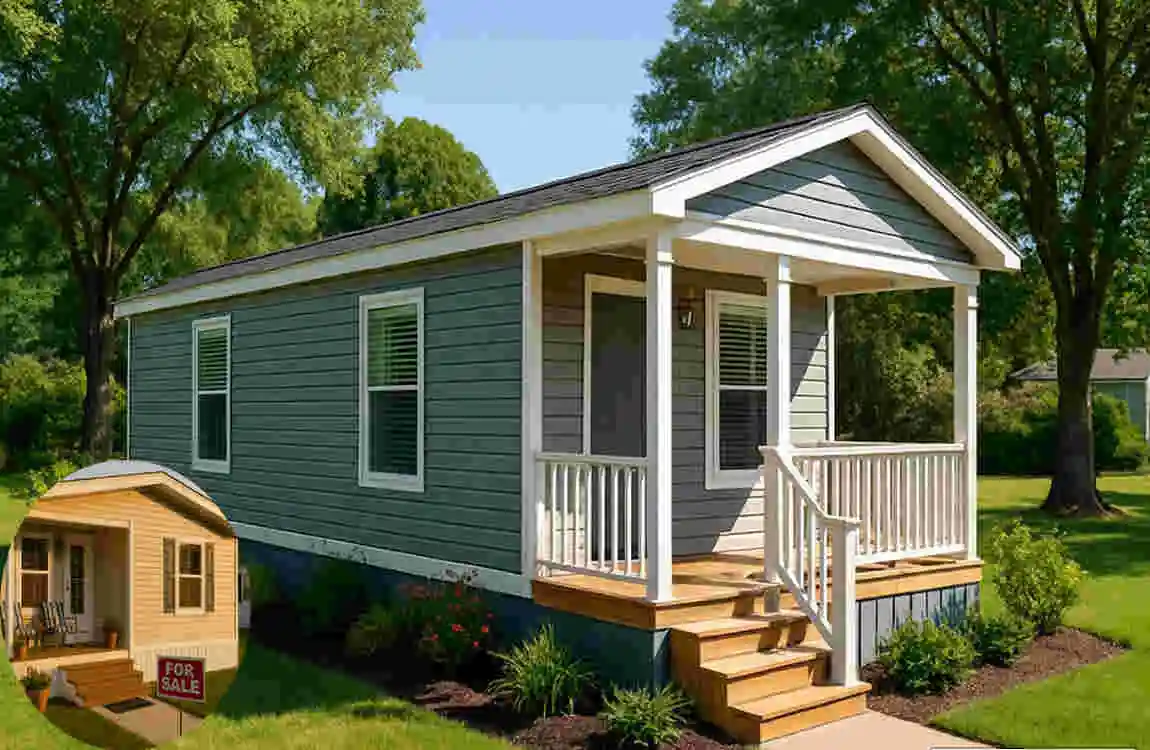
Getting your mobile home’s value right is crucial — whether you’re selling, refinancing, or just curious about its worth.
Imagine this: you price your mobile home too low, and you lose out on thousands of dollars you could have earned. Price it too high, and you risk scaring off buyers or paying more than necessary for insurance.
Accurate valuation benefits you by:
- Helping you sell at a fair, competitive price.
- Lowering refinancing rates by 1-2% through precise appraisals.
- Saving on insurance premiums by avoiding overvaluation.
To give you a clearer picture, check out this simple table comparing the average values of different types of mobile homes:
Mobile Home Type Avg. Used Value Range Key Influences
Single-Wide $10,000–$50,000 Age, condition
Double-Wide $20,000–$100,000+ Size, upgrades
Triple-Wide $100,000+ Land ownership, location
Understanding these ranges and what affects them can help you set realistic expectations and make smarter financial moves.
Key Factors Influencing Mobile Home Value
Knowing what drives your mobile home’s value is the first step to getting an accurate appraisal. Let’s break down the most important factors.
Location and Land Ownership
Location is a huge deal — it often accounts for 40-50% of your mobile home’s value.
- Owned Land vs. Park Rentals: If your mobile home sits on land you own, it will be worth significantly more. Land ownership means no monthly lot fees, which increases appeal and stability.
- State Differences: For example, mobile homes in Washington average around $164,000, while in Indiana, they average $103,000. These differences reflect local market demand and economic conditions.
Age, Size, and Layout
The year your mobile home was built matters because safety and quality standards changed drastically after 1976, when HUD compliance became mandatory.
- Age: Post-1976 homes generally keep a higher value.
- Size: Double-wides usually fetch 20-50% more than single-wides due to the extra space.
- Layout: Open floor plans and multiple bathrooms can add 10-20% to your home’s worth.
Remember, bigger and newer often equals better value, but the layout also plays a key role.
Condition and Upgrades
A well-maintained home commands a higher price. Inspections often focus on these areas:
- Roof condition
- HVAC system
- Appliances
- Flooring and kitchen updates
Upgrades like energy-efficient windows or decks can boost value by 20-50%. Here are some high-ROI fixes to consider:
- New flooring: +15%
- Remodeled kitchen: +25%
- Updated bathroom: +20%
Market Comps and Economy
Your local market also affects value:
- Look at recent sales of similar mobile homes in your area (referred to as “comps”).
- Economic factors like inflation or housing demand can push prices up or down.
Step-by-Step: How to Value Your Mobile Home
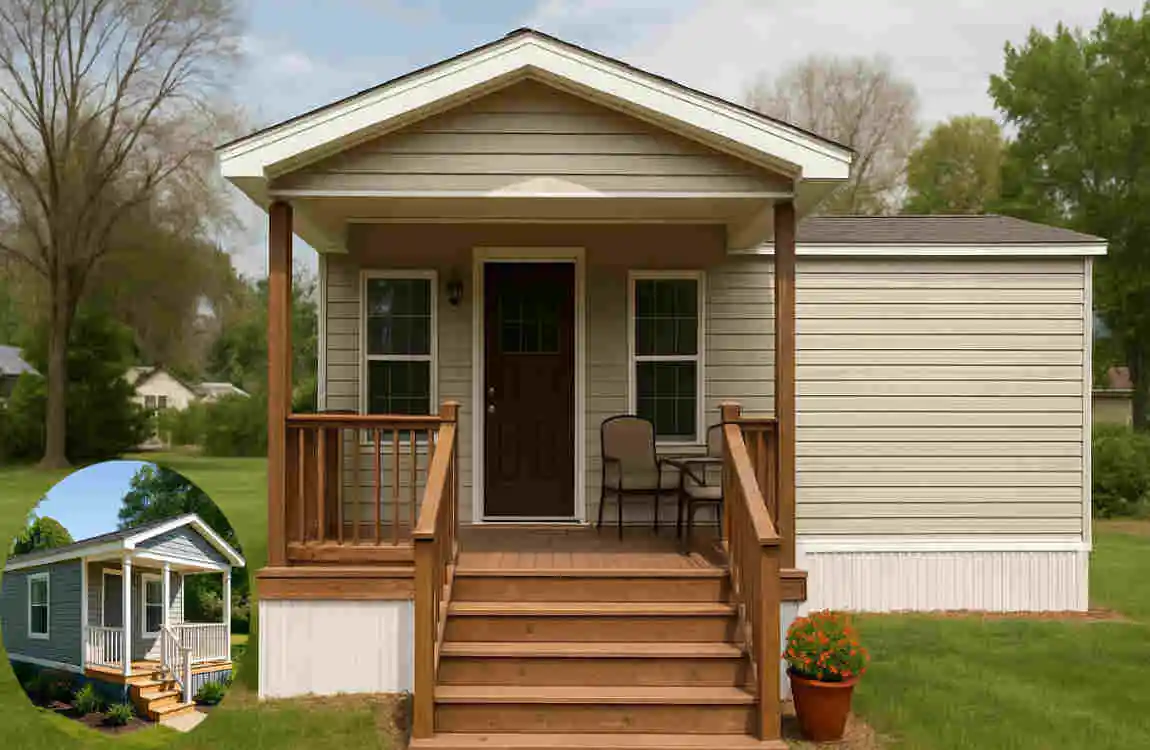
Ready to value your mobile home? Follow these straightforward steps that combine DIY methods with professional tips.
Gather Basic Info
Start by collecting your mobile home’s key details:
- Year, make, and model
- Size (square footage)
- VIN or serial number (found on the HUD label)
Use Free Online Calculators
There are excellent online tools that estimate mobile home value quickly:
- NADAguides: Enter your ZIP, home details, and condition.
- MHVillage: Similar input, with local market data.
For example, a 2008 double-wide in Texas might be valued at $60,000 to $75,000.
Research Comparable Sales
Search websites like MHVillage or Zillow for mobile homes sold near you:
- Use keywords like “mobile home comps [your ZIP code].”
- Compare prices, sizes, and conditions.
Factor in Upgrades and Condition
Assess your home’s condition honestly. You can:
- Inspect yourself using checklists.
- Hire an inspector for a detailed report.
Account for Land Value
If you own the land, subtract the land’s value to isolate your mobile home’s worth:
- Use county assessor tools or local real estate sites.
- Compare similar land parcels to estimate fair value.
This helps separate home value from land value, which is important for sales or refinancing.
Get Professional Validation
For the most accurate valuation, consider:
- Hiring a licensed appraiser ($300-$500).
- Getting a Datacomp inspection for condition specifics.
Professional Valuation Methods
When you want the highest accuracy, these are the main professional routes:
Method Cost Accuracy Best For
NADA Cost Guide Free-$50 Medium Quick online estimates
Market Appraisal $300+ High Selling & refinancing
Inspector Report $200+ High Condition-based value
Market-Based (Comps) vs. Cost Approach:
- Market-based compares recent sales to your home.
- Cost approach estimates the cost to rebuild or replace.
Common Mistakes to Avoid When Valuing Mobile Homes
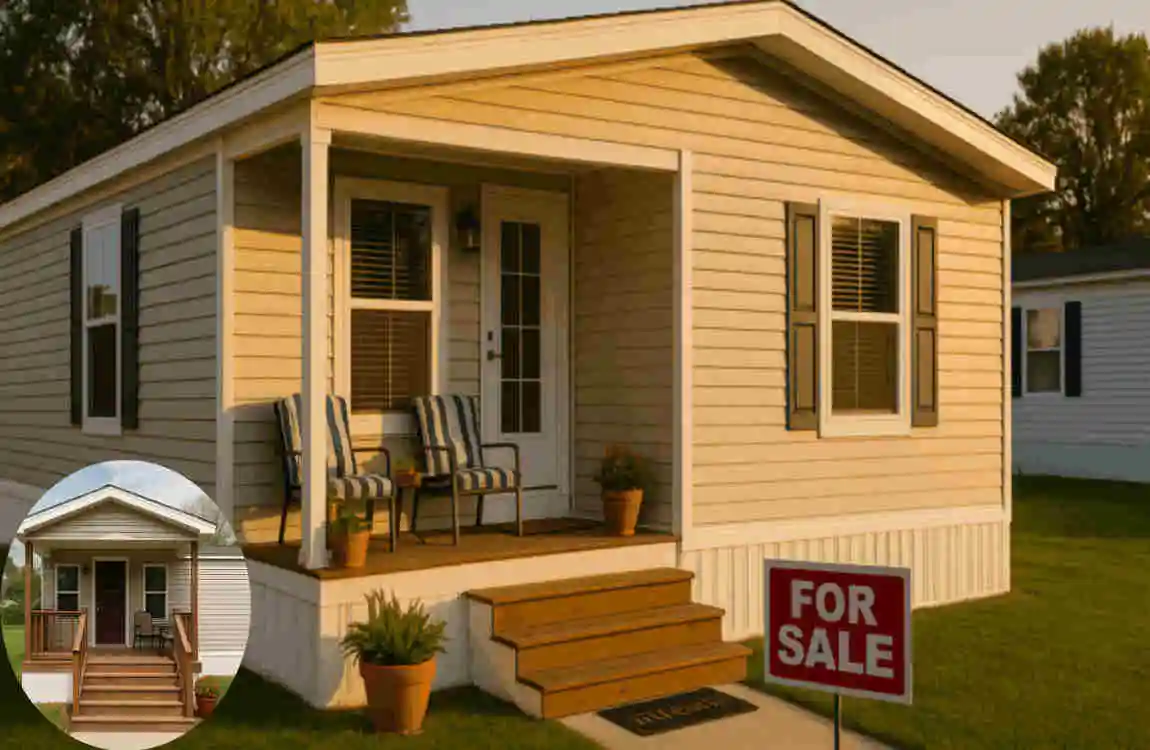
Avoid these pitfalls to get the most accurate value:
- Ignoring lot fees: If renting land, factor monthly fees into your price.
- Overlooking HUD compliance: Older homes built pre-1976 may have lower value due to outdated standards.
- Skipping comps research: Don’t guess prices without checking recent sales.
- Emotional bias: Remember, your home may feel perfect to you, but buyers want objective facts.
Tools and Resources for Mobile Home Valuation
Here’s a handy list of tools and resources to help you value your mobile home:
- NADAguides: Free and reliable pricing.
- MHVillage: Local comps and market trends.
- J.D. Power: Consumer insights and reports.
- County Assessor Websites: Land value data.
- Professional Appraisers and Inspectors: For detailed valuations.
Download Your Free Mobile Home Valuation Checklist!
Make sure you don’t miss any steps in your valuation process. [Get it here!]
Boosting Your Mobile Home’s Value Before Selling
Want to get the best price? Try these quick wins:
- Repairs: Fix the roof, plumbing leaks, and HVAC issues.
- Curb Appeal: Clean up landscaping and paint exteriors.
- Staging: Make your home look inviting and spacious.
Here are some upgrades with great return on investment:
- Adding a deck: +10% value boost
- Installing solar panels: +15% value boost
FAQs: How to Value a Mobile Home
Q1: How much is a 1990s mobile home worth?
A: It depends on the condition and location, but typically between $10,000 and $40,000.
Q2: Do mobile home parks affect value?
A: Yes, renting a lot with monthly fees lowers overall value compared to owning land.
Q3: Can I use online calculators on my own?
A: They’re good for estimates but should be combined with comps and inspections.
Q4: How often should I get my mobile home appraised?
A: Every 3-5 years or before major financial decisions.
Q5: Does the size of the mobile home matter?
A: Absolutely! Larger homes usually have higher value.

